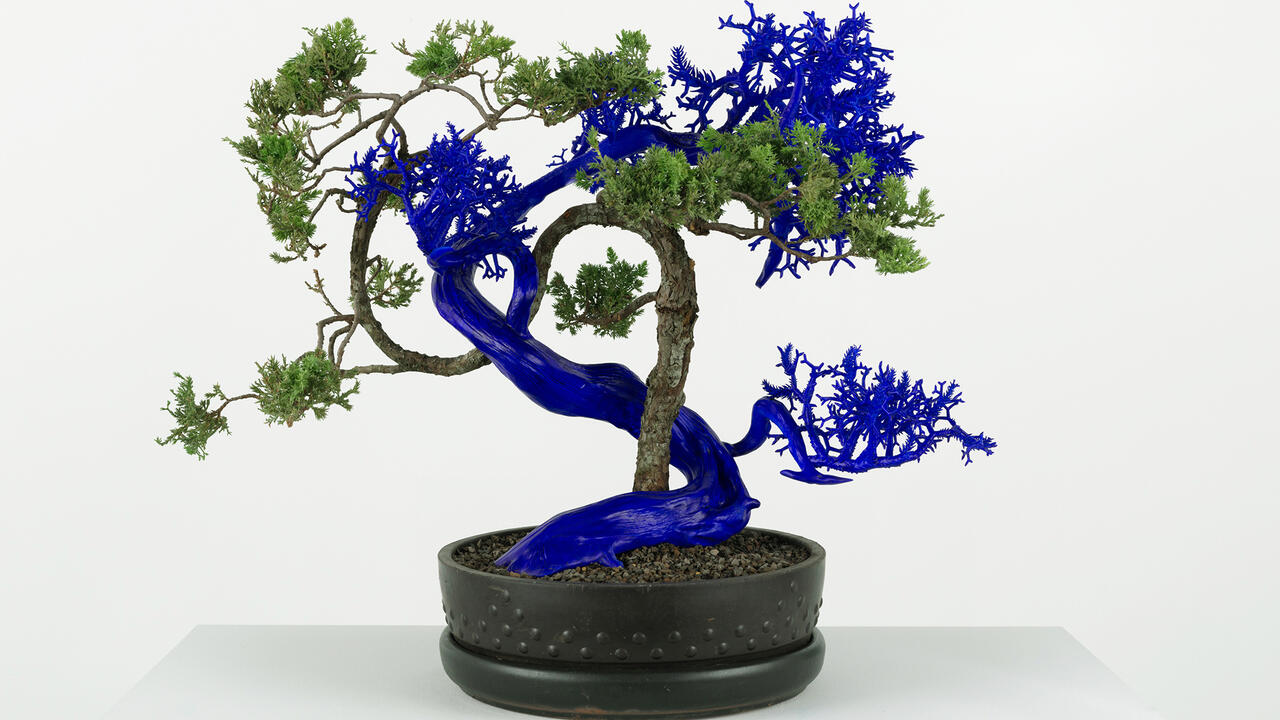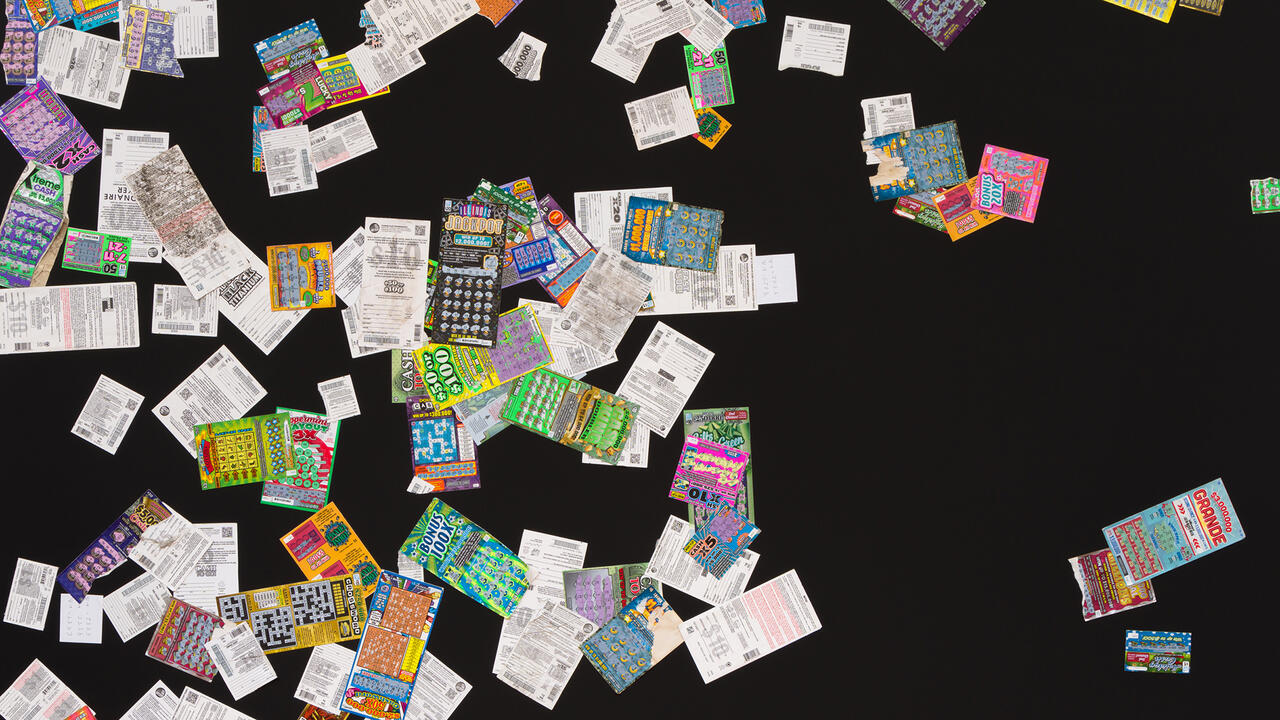Shahryar Nashat and the Tenderness of the Body
An exhibition at Swiss Institute, New York, reflects on the vulnerability of our bodies and our desire for intimacy
An exhibition at Swiss Institute, New York, reflects on the vulnerability of our bodies and our desire for intimacy

I finished reading Sally Rooney’s novel Normal People (2018) the morning I first went to see Shahryar Nashat’s exhibition at Swiss Institute. Also, my foot was broken. These two details may seem unrelated, but they provided an unexpected primer for Nashat’s work: Rooney’s novel is a study of youth and desire, my foot a lingering pain; Nashat suggests, in subtle ways, that such things can coincide in bodies constantly yearning for intimacy.

On the ground floor, a seven-foot-long sculpture, Start to Beg (2019), is laid out on the floor, reminiscent of a recumbent body. It is made of synthetic polymer and fibreglass, the latter material used to cast broken bones. It lies beside Keep Begging (2019), an 11-minute video portrait of triceps or, more precisely, the space between the elbow and the armpit – the few inches separating rough exterior skin from that which is hairy, moist and folded closed. In the background, a score composed by musician Ethan Braun plays beneath a single repeated line: ‘Do we go to war?’ This recalls Nashat’s previous video works, such as Present Sore (2016), in which images of a man’s body were overlaid atop each other, and Image Is an Orphan (2017), in which recorded phrases (‘How will I die?’, ‘Who will carry me?’) accompany the image of a beating heart. Keep Begging feels even more stripped down in its wistful representation of the body. Nashat’s question invokes the possibility of violence, lovers separated, limbs broken. In the corner of the room, Nashat has installed four sculptures, each titled Rib (2019) and made of urethane, a synthetic crystalline that was once used as an anaesthetic; one bears a small papier mâché bandage. In a small back room just beyond them, partially hidden by a short rubber curtain, is Sex Position for Broken Ribs (2019), a walker covered in thick and fleshy papier mâché, leaning against the wall on two wheels, unstable but ready for use.

A body – that thing which can age, hurt and sometimes break – is treated with tenderness in this exhibition. This is complemented by the exhibition space, which Nashat has transformed to feel dimly lit and enclosed, like a bedroom. In the upstairs gallery, a white wall has been installed over the windows and the glass doors have been painted white, blocking out all natural light. The ceiling lights, meanwhile, have been changed to emit a warm glow. Soft electronic music plays in the background. The works are all clustered in one-third of the room, hanging on one wall and set against a long plinth which bears the same stone pattern as the flooring. Atop this counter-like construction, and hanging from the walls that face it, are four darkred sculptures (all titled Bone In, 2019) that recall slabs of meat or flayed human legs wrapped in cling film. Fortune cookie-sized notes are embedded in the sculptures, bearing flirtatious messages, such as ‘This could be us but you’re playin’, that plead – or beg – the viewer for attention. On the wall hang two UV prints on plaster based on X-rays of Nashat’s shoulder (both Untitled, 2018). Though abstract, like the other works on view, the pastel yellow and pink pair offer something to hold on to: the haunting image of a body barely there.
'Sharyhar Nashat' is on view at Swiss Institute, New York, until 2 June 2019.
Main image: Shahryar Nashat, Bone In (detail), 2019, synthetic polymer, PVC, pigment, paper. Courtesy: the artist, David Kordansky Gallery, Los Angeles and Rodeo, London / Athens

























